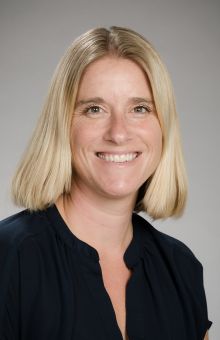Clinical and Research Background
The Young Lab is interested in determining the molecular and cellular mechanisms behind genetic risk for late-onset sporadic Alzheimer’s disease (SAD), the most common neurodegenerative disorder. Our goal is to develop a robust model for SAD in the laboratory using human induced pluripotent stem cells (hiPSCs), which capture the genetic background of an individual patient in a dish. We are currently generating a cohort of SAD patient and control stem cell lines in collaboration with the UW Alzheimer’s Disease Research Center and interrogating how genetic variants in genes that control endosomal trafficking and sorting contribute to SAD risk in human neurons differentiated from hiPSCs. Another focus of the laboratory is engineering cell lines with risk and protective variants using genome-editing technology to test the function of these variants in isogenic cells. Our work will contribute to basic understanding of neuronal mechanisms that become dysfunctional in SAD as well as open up new avenues to test for therapy development.
Academic and Medical Appointments
Assistant Professor, Department of Pathology, University of Washington, Seattle, WA, 2016-present
Assistant Project Scientist, Department of Cellular and Molecular Medicine, University of California, San Diego, San Diego, CA 2015-2016
Education and Training
Postdoctoral Fellowship, Department of Cellular and Molecular Medicine, University of California, San Diego, San Diego, CA 2009-2015.
Ph.D. Molecular and Cellular Biology, University of Washington, Seattle, WA, 2009.
M.A. Biology, Sonoma State University, Rohnert Park, CA, 2002.
B.S. Biology, University of Wyoming, Laramie, WY, 1997.
Publications
Latest publications from PubMed
